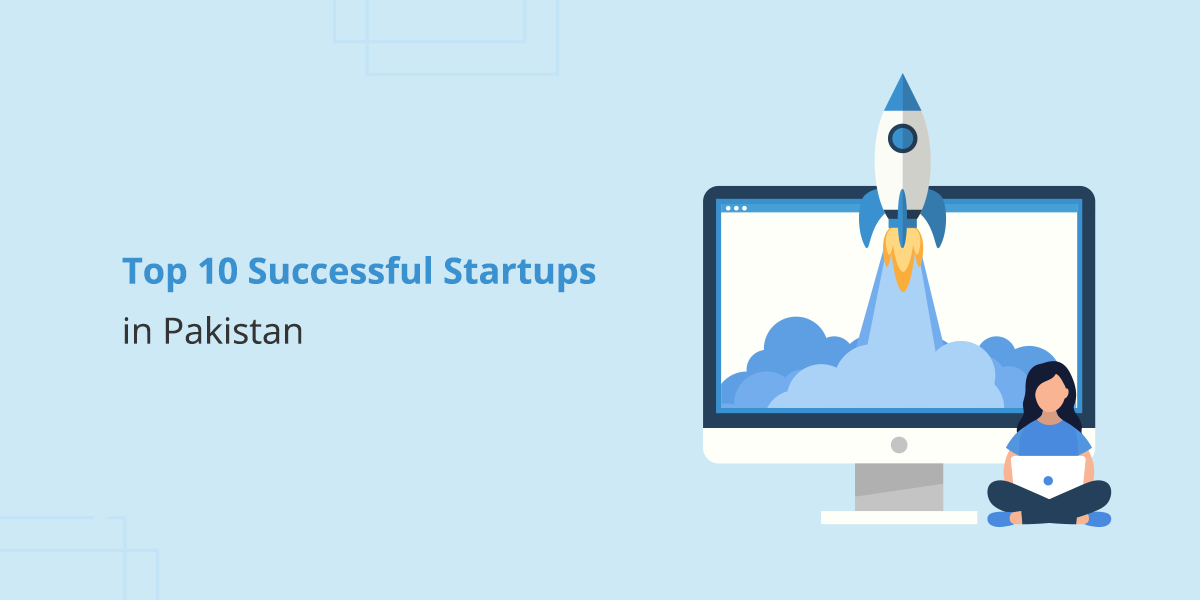Despite Pakistan’s precarious economic situation, the country remains a hotbed for entrepreneurial activity. Of course, this activity is nowhere near the country’s potential, but it is a welcoming sign. Over the years, numerous startups have managed to raise funding. Unfortunately, many of them have gone bust.
This article provides an overview of Pakistan startups to follow in 2023. While we cannot guarantee that they will become successful business ventures, they merit a detailed study. Operating in a market as volatile as Pakistan is certainly no easy task.
If a startup manages to keep operating even for a short period, it serves as an important case study on operating in highly uncertain environments. Before discussing these startups, there is a need to discuss notable Pakistani startup failures and the reasons behind their failure.
Notable Pakistani Startup Failures
Airlift
This startup envisioned a shared mass transport system in the country. Considering the high fuel prices, many people switched to Airlift, which proved less costly. Unfortunately, the startup announced cutting back its operations last year. Eventually, it shared the sad news that it was shutting operations permanently.
Yayvo
Another notable failure is Yayvo, a flagship product of the TCS company. Yayvo, an eCommerce platform, was heralded as the Alibaba of Pakistan. However, a string of poor decisions and infighting between the top management eventually led to the platform’s permanent closure.
Patari
This startup was the Pakistani answer to Spotify, the renowned music streaming platform. The only difference was that Patari was solely dedicated to Pakistani music. While the startup showed significant potential, it has failed to live up to the hype. Copyright infringement claims have forced the platform to remove most of the music.
Reasons Behind Pakistani Startup Failures
It is challenging to pinpoint the reasons startups fail in Pakistan. Undoubtedly, there are several contributing factors. However, experts believe that the topmost reason behind startup failure in Pakistan is the lack of market research. Most startup owners have a good business idea but do not back it up with research.
As a result, they begin to invest in an idea that sounds perfect on paper but may not have any market demand. Secondly, startup owners don’t have a knack for conducting research and development. They don’t understand that without R&D, it is impossible to refine the product or stay ahead of the competition.
The third most common reason is financial mismanagement. Startups that manage to raise funding spend the money irrationally. They use the money to offer subsidised rates to their target audience. What they must understand is that the subsidies are a recipe for disaster.
The focus should be on determining the right pricing rather than implementing penetrative pricing, which is not sustainable. Lastly, another common reason is the lack of funding. Unfortunately, there are very few local investors in the country. Foreign investors are keener to invest in stable markets.
Without adequate funding, startups risk closure before realising their potential. It must be noted that most startups run at considerable losses during their initial years. The goal is not to earn money but to refine the product. Profit-making comes later. Unfortunately, Pakistani startups don’t have the funding to bear the initial losses.
Top 10 Pakistani Startups to Follow in 2023
These top startups in Pakistan operate in different industries. They have secured multi-million-dollar funding and look on track to become successful business ventures. The country’s uncertain environment can prove detrimental to their long-term growth, but they are showing strong resilience.
The top 10 successful startups in Pakistan are:
1. Dastgyr
Numerous international investors, including VEON and ADB Ventures, back this startup. It speaks volumes about the idea’s potential to become the next big thing. It is a B2B eCommerce platform for engineering, agricultural, chemical, and construction products.
It connects retailers with manufacturers and wholesalers, thereby improving the supply chain. This platform is available outside Pakistan, including the Kingdom of Saudi Arabia, UAE, the UK, and Qatar. It is one of the standout points of this platform, as hardly any local platforms hold the same advantage.
Indeed, it is a perfect opportunity for Pakistani retailers, manufacturers, and wholesalers to participate in the international market. It can prove instrumental in expanding the customer base and bringing much-needed foreign exchange to the country.
2. Tajir
It is another B2B platform. Unfortunately, procurement in Pakistan’s retail industry is quite cumbersome. Retailers waste considerable time talking to different suppliers, enquiring about the rates and expected delivery date. Even after finalising everything, late and incorrect deliveries are the norm.
It is where Tajir comes into play. It enables retailers to enquire about goods online, removing the need to visit wholesalers or spend considerable time negotiating. Everything is done online smoothly and transparently. A process that took considerable hours is now completed in mere minutes.
3. Bazaar Technologies
Pakistan’s retail sector is troubled with high fragmentation and inefficiency. A tech-based solution will always be a hit as long as it improves efficiency and reduces operating costs. Bazaar Technologies provides an integrated procurement solution similar to Tajir.
However, it goes one step further with its other product offerings. One such product is Easy Khata – which is a simple bookkeeping application. It allows businesses to move from paper-based bookkeeping to a more secure and digitised version. It has also launched Bazaar Credit, offering short-term loans to businesses.
As you may notice, the first three startups revolve around eCommerce. United Sol., a leading eCommerce development company in Pakistan, believes that eCommerce still has considerable untapped potential. This sector can easily earn billions of dollars and bolster the economy.
4. Salesflo
Featuring on the Amazon Web Services (AWS) blog speaks volumes about this startup. Amazon ranks it as the number one software as a service platform for the Pakistani fast-moving consumer goods industry. This startup boasts notable brands such as Unilever, Nestle, National Foods, and others as its clients.
Under the Salesflo umbrella, the startup offers four distinct products. One of the products is the Salesflo Core, which offers numerous features, including delivery vehicle load optimisation. By using advanced analytics, the software is able to optimise the routes, thereby improving time to delivery and reducing costs.
5. SadaPay
The Pakistani banking industry is fraught with challenges, ranging from poor customer service to increased scrutiny of personal transactions. SadaPay strives to be the alternative to the conventional banking system. It is an online money management platform that allows you to manage local and international payments.
It is designed to be fast and efficient. So far, the platform has not disappointed. With further enhancements expected down the road, SadaPay can truly become an alternative to banks. It has no hidden fees, the exchange rates are perfect, and the platform is highly secure.
6. Finja
This startup is dedicated to fostering the growth of micro, small, and medium enterprises (MSMEs), corporate entities, and salaried professionals through digital transactions. A leading Finja product is the Finja Invest, a P2P platform. It allows businesses to provide instant loans to others without any bank involvement.
The lending business earns a monthly profit and can withdraw the principal amount anytime. Other than this, the startup offers creative solutions to manage business operations. Its human resource management system enables businesses to manage their workforce using smartphones.
7. Truckistan Technologies
This company offers tech-oriented solutions in the less-than-truckload (LTL) sector. LTL is where a business wishes to ship goods by truck, but their goods don’t occupy the entire truckload. Using technology, the company can optimise loads and routes, reducing transportation costs.
Unlike other companies, Truckistan enables businesses to track every shipment carton. It is a much-needed feature, especially due to the high rates of theft and loss during transportation. Truckistan promises to deliver goods from Lahore to Karachi in 72 hours.
8. Dawaai
Most people consider it as an online platform for buying medicine alone. However, it is much more than that, allowing customers to seek medical help online. Customers can book online appointments with leading healthcare professionals with just a few taps.
Dawaai also allows users to book at-home services, including home nursing and sample collection. It recently launched the Diabetes Care Program, which provides users with strips and a glucometer for daily reading. Under this program, users can access a doctor and a quarterly HbA1c test.
9. Bykea
Competition is what pushes startups and established businesses to keep improving their product. Without competition, businesses are in a position to abuse their market position and cause harm to the users. With Uber’s acquisition of Careem, there was no competition in the ride-sharing sector.
Bykea’s entry is highly welcoming as it provides much-needed competition. Last year, it raised an additional $10 million from its existing funders. The startup said it will use the money to refine its existing app. Secondly, it will expand its footprint in the food and eCommerce sectors.
10. NayaPay
It is an electronic money institution regulated by the State Bank of Pakistan. The best way to describe it is that it is a faster, more secure, and more reliable alternative to traditional banks. There is no account opening fee nor any annual charges. The platform is upfront about all charges, thereby ensuring high transparency.
For businesses, NayaPay offers fully integrated POS machines. The POS are compatible with almost every wallet, debit, and credit card. There is no need to set up a website to receive payments. Businesses can simply use the NayaPay Arc to create shareable payment links with customers.
SadaPay and NayaPay are giving tough competition to each other. Of course, this competition is healthy for the industry and offers considerable benefits to the customers. As a tech-oriented startup, it provides users instant ways to manage their money, which traditional banks still lack in today’s digital age.
Conclusion
It concludes our views on the top 10 Pakistani startups to follow in 2023. These startups have managed to stay afloat and serve the audience despite the numerous challenges. It won’t be long before the country has its first unicorn, a startup valued at over US$ 1 billion.










